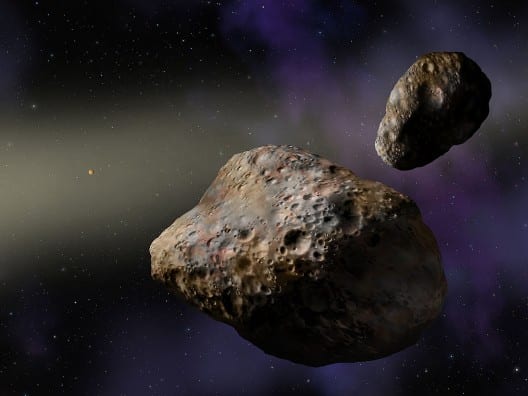KSC Open For Business, Looking for Partners
Space research is a part of our everyday life, from microwave food to robotic surgery.
“Where do you think robotic surgery came from?” asked Esther Beltran, a medical doctor who’s treated astronauts at Johnson Space Center and an advisor to UCF’s Institute of Simulation and Training. “It came from the robotic arm that Canada developed for the International Space Station.” 
In order for space research to continue to help our everyday living, more joint projects that cross multiple disciplines are needed, organizers said. That’s why the Florida Space Institute sponsored Space Day at UCF on Tuesday.
The half-day program, which included 12 speakers and a question-and-answer session, was crafted to help stimulate new ideas for future KSC/UCF research and technology-development partnerships. The event drew about 40 researchers and students from across the state.
The message was clear. KSC is open for business and there is a lot of room for interested companies and entepernuers with good ideas. Attendees wasted no time in starting those cooperative conversations.
Scientists, some who had never met before, began exchanging business cards and sharing ideas for joint work during the breaks in the program.
Imagination is the limit, some said after hearing about several UCF projects and one UF project. A UF researcher explained how a specialized camera on a small satellite his team developed is part of a pilot program that will help a Mexican oil company monitor network of oil pipelines to help deter theft.
And the opportunities are not limited to non-manned missions. Alan Stern, a former associate administrator of NASA’s Science Mission Directorate and the CEO of a private start-up company called Golden Spike, talked about the commercial effort his company is undertaking to provide lunar orbital and surface expeditions to the moon at affordable prices.
The former FSI director outlined how the company plans to execute routine trips to the moon for less than $7 billion, a huge sum for individuals, but not necessarily for governments, Stern said.
“We believe we will have plenty of customers,” Stern told the audience. “We crunched the numbers.”
It takes NASA about $7 billion to send out robotic missions into the solar system. Golden Spike can deliver manned missions for that amount, he said. KSC is especially well situated for those moon trips because of its experience in launching manned and unmanned spacecraft through the years.
Aside from U.S. corporations, Stern believes other countries will want to be part of the exclusive club that’s placed people on the moon. By giving those countries an opportunity to do so, the company will help build some passion for space again.
“We’re going to treat space like NASCAR, we’re going to make it exciting,” Stern said.
He admitted some might think the plan sounds like science fiction, but he said that it was doable and pointed to journal articles some of the company’s researchers have published showing how it is possible by adapt current technology.
“We’ve started the engineering studies,” Stern said. “We could be talking about two to four missions out of Florida, that’s a lot of jobs.”
FSI is an institute of the State University System and is housed at UCF. It supports space research, development, and education activities. In addition, it supports the development of Florida’s space economy.

